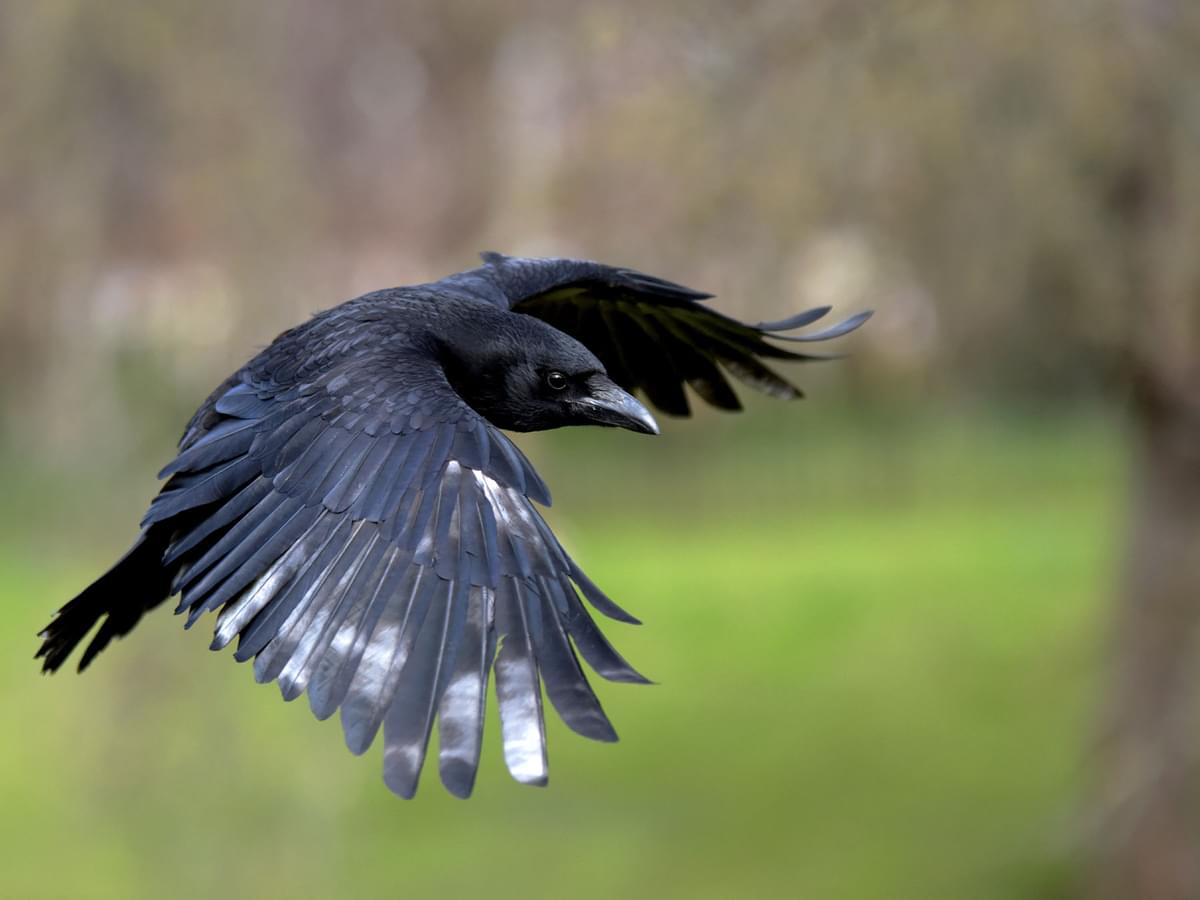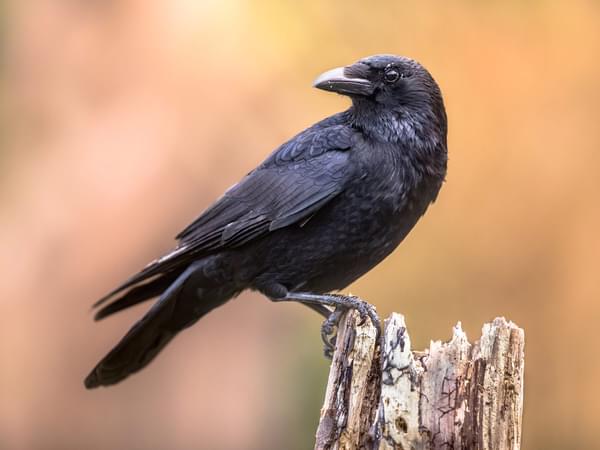Do Crows Eat Other Birds? Separating Fact from Fiction in Avian Predation
Last updated: 17 November 2023

With over 40 species spread out all over the world (except Antarctica), crows are familiar to most of us. They owe their success to incredible intelligence and the adaptability to use a huge range of food resources.
Many backyard bird watchers feel anxious when they see crows around, especially in the spring and summer when their favorite songbirds are nesting. But do crows actually eat other birds? Are they a serious threat?
Crows feed on various birds and their eggs, ranging from small sparrows right up to large Osprey eggs! Rather than specializing in certain types of prey, crows are usually alert to any feeding opportunity, and they will take any bird they can safely catch and overpower.
Read along as we learn more about which birds crows eat, how they catch them, and whether they have a serious impact on bird numbers.

Carrion Crows (pictured) will come to gardens in search of food
Common Types of Birds Crows Eat
There are few bird species that crows wouldn’t eat if given the chance. Generally speaking, crows will feed on any prey animal that they can safely catch, overpower, and kill. For example, American Crows and Hooded Crows have been known to eat the adults and/or nestlings of the following bird species:
- Hummingbirds
- American Robins
- Ducklings
- House Sparrows
- Starlings
- Pigeons
- Lapwings
How Crows Catch Birds
Crows can catch birds by chasing them down in flight, but they are far more successful at hunting young birds like hatchlings, nestlings, and fledglings. Sick, injured, trapped, incubating, or dead birds are also easier targets for these opportunistic omnivores.

Pictured: A Hooded Crow. Generally speaking, crows will feed on any prey animal that they can safely catch, overpower, and kill
Crows Eating Birds Eggs
Crows are better known for stealing other birds’ eggs than for catching live adults. In some areas, eggs are a significant seasonal food source for crows, especially where birds nest nearby in large colonies.
Continue reading to learn how crows find and collect eggs.
How Crows Find Eggs
Crows are well suited to snatching eggs from birds that nest in open platform or cup-shaped nests, particularly where they nest in visible and accessible places like ledges, tree tops, cliffs, or the ground.
These smart birds will steal the eggs of larger birds while the parents change over incubation, and they will also take advantage of nesting birds that are frightened away by other predators. However, smaller birds like pigeons and doves usually flee the nest when crows approach, allowing the crow a pretty trouble-free meal.
Crows usually prefer to carry the eggs off and stash them or feed on them elsewhere. This way, they are less likely to be mobbed by the parents, and they may return to remove all the eggs before eating them in peace. They will hide their prize among thick vegetation or other places where they are invisible to competitors like other crows.
Which Bird’s Eggs Do Crows Eat?
Crows will feed on the eggs of any bird species they can find and safely collect. Pied Crows from Africa may even break Ostrich eggs by dropping stones from the air! Let’s take a look at a few examples of their common target species:
- Domestic, feral, and wild doves and pigeons
- Various small and medium-sized songbirds with accessible nests
- Ground-nesting shorebirds and seabirds like lovers and terns
- Cliff-nesting seabirds like Cormorants and Guillemots
- Ducks and other wildfowl
- Herons
- Domestic Chickens and Quail
- Even eagle and vulture eggs are vulnerable

Pied Crows (pictured) from Africa may even break Ostrich eggs by dropping stones from the air!
Contextual Factors
Crows will feed on whatever food source is most readily available but will not pass up the opportunity for a protein-rich meal. These birds regularly eat the eggs, young, and adults of many bird species, but which factors cause this behavior?
Time of year
Adult birds provide a potential food source for crows throughout the year, and dead or injured birds along roadsides can offer an easy meal for crows with territories along roads or in urban areas.
Most birds nest in the spring and summer, creating an ideal but temporary food source for hungry crows. Not only are their eggs and nestlings vulnerable, but clumsy fledglings can make easy meals for crafty crows.
Habitat
Certain habitats are ideal for hunting other birds and their eggs. Crows that live around sea cliffs may have a rich bounty around seabird colonies, while lakes and ponds are magnets for nesting wildfowl.
Nest location and accessibility
Crows have to locate nests in order to feed on eggs and chicks. Nests on open ground and other exposed areas are relatively easy to spot and access.
Species
Most birds in the corvid family will eat other birds and their young, but some species are more likely to hunt birds than others. The following crow species are known for this behavior:
- Carrion Crow
- Hooded Crow
- American Crow
- Northwestern Crow
- Fish Crow

The Northwestern Crow (pictured) is a species known to hunt birds
Crows as Opportunistic Feeders
Crows are extremely intelligent and adaptable. Far from bird-eating villains, they rely on a broad range of food sources to survive and raise their own young. Birds and their eggs are a natural part of the crow’s diet, but they are rarely their primary targets.
Oversized Songbirds
Crows are actually songbirds, and this is reflected in their anatomy. They simply don’t have the tools to be formidable bird hunters like true birds of prey.
Consider the master bird hunters of the avian world. The Accipiter hawks like Sharp-shinned and Cooper’s Hawks in America and the Sparrowhawk of the United Kingdom use stealth and agility to catch their prey, while falcons from the Falco genus use sheer speed and power to catch theirs.
Both groups have specialized anatomy for their flight-hunting technique, and importantly, they have large talons and sharp, hooked bills to catch, kill, and feed on other birds. Although crows can hunt live, healthy adult birds, they would probably go hungry if they were to focus solely on this food source.

Pictured: A Cape Crow sitting on a rock
Impact on Ecosystems
It’s undeniable that crows feed on other birds at all life stages, from eggs to adults. However, bird lovers should not be too quick to blame these birds for songbird declines. Crows are part of natural ecosystems as well as urban and suburban ecology.
It’s important to remember that crows are not the only bird predators around, so removing corvids would not necessarily reduce predation but rather provide more feeding opportunities to other predator species like rats, domestic cats, raccoons, and foxes.
When are Crows a Threat?
While crow nest predation has a limited impact on common backyard bird numbers, it can be a problem for threatened bird species like the endangered California Least Tern, which is already burdened by other threats.

Pictured: An American Crow feeding in a backyard
FAQs
Would a Crow kill a Pigeon?
Crows can kill pigeons, but they are most likely to catch birds that are already sick or injured. However, their eggs and chicks (squabs) are easy targets, especially since pigeons often nest in pretty open and accessible positions.
Should you prevent Crows from eating other birds?
As unpleasant as it might be to see crows raiding songbird nests, it’s usually best to let nature take its course. Contact your local wildlife authority if you’re concerned about the safety of any threatened or endangered species.
Do other birds eat Crows?
Crows are known to eat birds and their young, but these opportunistic omnivores are just as vulnerable to other birds. Large owls, eagles, Goshawks, and other larger hawks will feed on adult crows, their eggs, and chicks.







